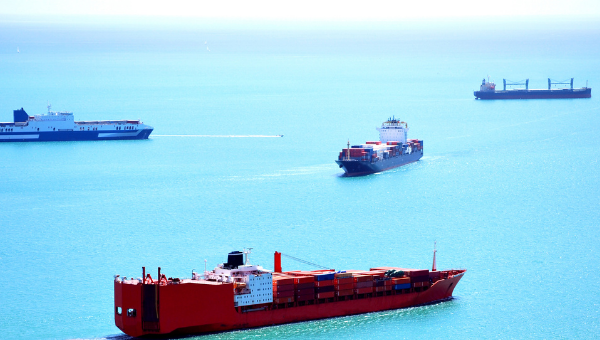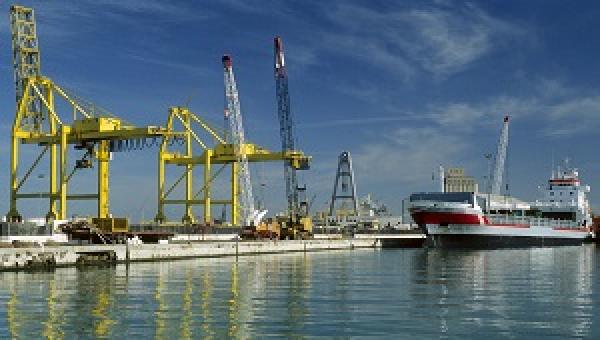Time for cleaning bottom – a debt or damages?
In Smart Gain Shipping Co Ltd v Langlois Enterprises Ltd (“Globe Danae”) [2023] EWHC 1683 (Comm) the Commercial Court considered an appeal under section 69 of the Arbitration Act 1996 of a partial final award in which the Tribunal awarded Owners’ claim for loss of time spent cleaning at the hire rate and related cleaning costs under a time charter.
The Charterparty
This decision was an appeal of an arbitration award by Chartererunder section 69 of the Arbitration Act 1996 – that is on a question of law. The question posed for the court was:
“If a clause in a time charterparty provides for underwater cleaning will be done at the Charterers' time, does that provision give rise to a claim in debt (so that if the owners undertake cleaning after redelivery, they can claim for the cleaning time even if they have not suffered a loss of time)?"
The Globe Danae (the “Vessel”) was time chartered on an amended NYPE form (the “Charterparty”) for a time charter trip from East Coast India to Brazil with duration being about 40-50 days. The Charterparty contained clause 86, which provided:
Clause 86 Hull Fouling
Owners not to be responsible for any decrease in speed/increase in consumption of the Vessel whether permanent or temporary cause [sic] by Charterers staying in ports exceeding 25 days trading in tropical and 30 days if in non-tropical waters. In such a case, underwater cleaning of hull including propeller etc. to be done at first workable opportunity and always at Charterers' time and expense. After hull cleaning vessel's performance warranties to be reinstated."
(Our emphasis and the words referred to as Clause 86 in the award/decision on appeal)
The Dispute
The Vessel loaded cargo at Haldia, India and proceeded to Brazil where the receivers rejected the cargo. The vessel remained in tropical waters in Brazil for at least 42 days while a new buyer for the cargo was found. On completion of discharge, the Vessel was redelivered without Charterers cleaning her hull despite Owners’ request that it be cleaned. Prior to delivery of the Vessel to the next employment, Owners undertook the cleaning of the hull’s bottom.
Owners argued that the bottom had been fouled because of the Charterers’ orders to remain idle and, as such, under Clause 86, Charterers were liable for the cost and time for cleaning the Vessel’s bottom. Owners, therefore, claimed US$74,506.70, being the cost of bottom cleaning (US$55,103.13) and loss of time (at the Charterparty rate) during the cleaning, which took 2.9 days.
Charterers denied they were liable to pay hire for the time taken to clean the hull. Charterers applied a narrow interpretation of Clause 86 to limit their obligation to arrange underwater cleaning only while the vessel was on hire to them. That is the suspension of performance warranties could only apply if the Vessel remained in Charterers service and, therefore, Charterers were only obliged to carry out underwater cleaning while the Vessel was operating under the Charterparty and during which time the Vessel would remain on hire. If hire was not paid, Owners would have a claim for the outstanding hire.
Charterers argued that after redelivery the vessel would no longer be in Charterers’ employment, and they would have no rights to give orders for underwater cleaning and Charterers would not know when the first workable opportunity arose. In this case, since Owners undertook the hull cleaning while the vessel was in between employments, there was no actual loss of time and, therefore, Owners could not claim hire at the Charterparty rate. If the Owners succeeded with their claim for hire, they would have a windfall. Charterers asserted that Owners would only have a claim for damages for breach of charter, if they could show that the cleaning affected the commercial operation of the vessel and that she could not be further chartered.
The Award
The tribunal acknowledged that the purpose of the clause 86 was to allocate the liability for removing the marine growth formed on the hull, while the vessel was idle for extended periods pursuant to Charterers’ orders. Under Clause 86, the performance warranty was suspended during the time Charterers undertook hull cleaning at their time and cost. Charterers’ obligation was to arrange cleaning at their time and expense at the first workable opportunity to enable Owners to deliver the vessel into the next employment with a clean bottom. It is possible that the first workable opportunity would only be after the vessel completed discharge. It was, therefore, not necessary for Owners to show loss of time irrespective of whether the cleaning was performed before or after redelivery. The tribunal agreed with Owners that Charterers’ obligation under Clause 86 gave rise to a claim for the outstanding hire. The tribunal rejected Charterers’ argument that they were not obliged to carry out the cleaning after redelivery and that they had no obligation to pay hire.
Owners’ claim succeeded and the Charterers appealed.
The High Court Judgment
The High court applied principles of contractual constructions set out in The Ocean Neptune (see The ‘Ocean Neptune’ – Demurrage Claims – again!) to determine the objective meaning of the language used by the parties having regard to the contract as a whole. In this respect, as a matter of construction, if there are two possible interpretations of a clause the court would be entitled to prefer the construction which is consistent with business common sense and to reject the other.
The court dismissed Charterers’ appeal and found in favour of the Owners on the following basis:
- There was nothing in the Charterparty which required the underwater cleaning be undertaken before the vessel is redelivered to Owners. The vessel can be redelivered unclean, but in that case the Owners were to be compensated at the hire rate for the time when cleaning is undertaken.
- Clause 86 was a specific clause dealing with the underwater fouling. It operated if the Charterers ordered the vessel to remain idle and consequently the hull needed cleaning. Cleaning under the clause is to be "always at Charterers' time and expense", meaning that Charterers must always pay for the time for underwater cleaning. Charterers do not themselves need to undertake the underwater cleaning but have an obligation to pay for the underwater cleaning at the Charterparty hire rate.
- The phrase "at the first workable opportunity" includes cleaning carried out both before and after the Charterparty. The Charterparty was a one trip charter; if the vessel was redelivered uncleaned, Owners would have to undertake the cleaning at the first workable opportunity which is likely to be once the Charterparty had concluded, and the vessel had been redelivered. There was no windfall to Owners. Owners would have to carry out the cleaning before delivery to the new employment to avoid being in breach of warranty to the new charterers.
Comment
In the absence of an express term, the risk of hull fouling caused by owners complying with charterers’ legitimate orders is generally considered to be an operational risk which owners agreed to bear when fixing the vessel. As a result, owners usually have no right to indemnity for the cost and time of cleaning the holds (see Hull Fouling - Charterparty Issues, explaining the decision in The Kitsa). As a result of The Kitsa, charterparties usually contain a clause to deal with hull fouling following charterers’ orders to remain idle for prolonged periods, with clauses usually allocating the cost of hull cleaning to charterers. BIMCO has also produced a BIMCO Hull Fouling Clause for Time Charterparties with similar effect. The court decision is commercially sensible and avoids giving charterers an incentive to redeliver the vessel without cleaning the hull and avoid paying the hire for the time spent cleaning after redelivery.




